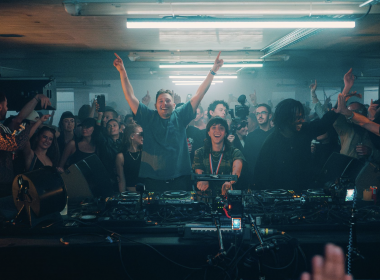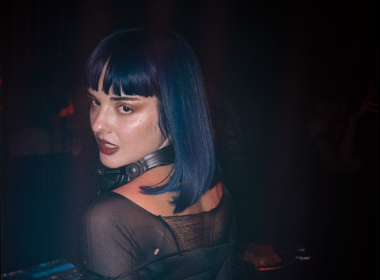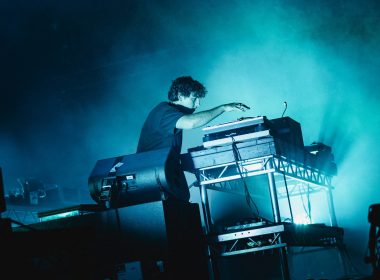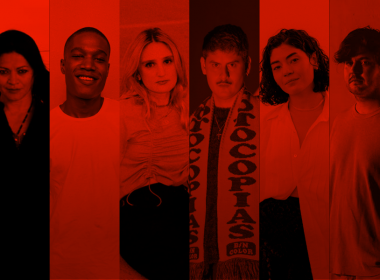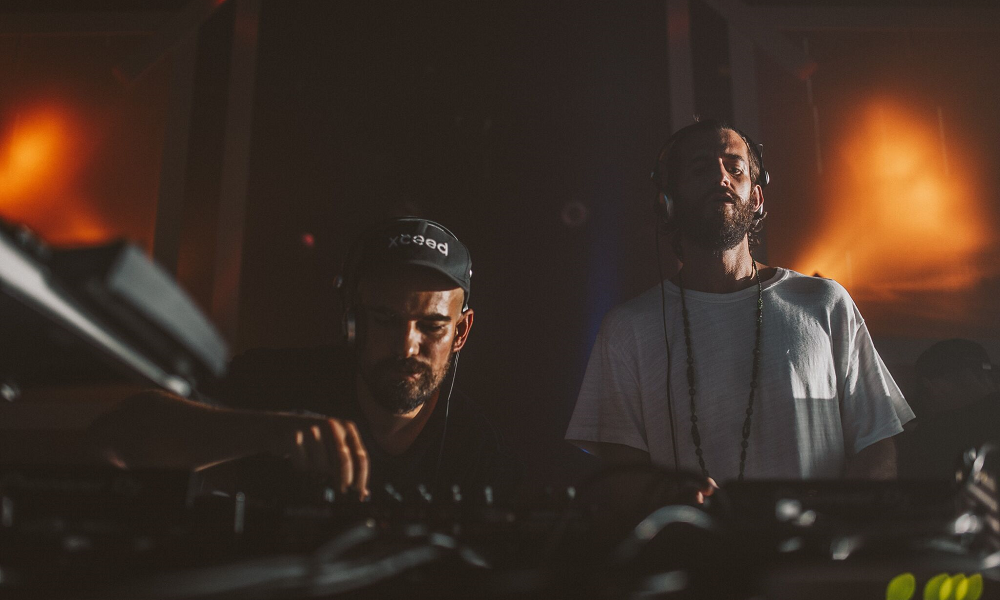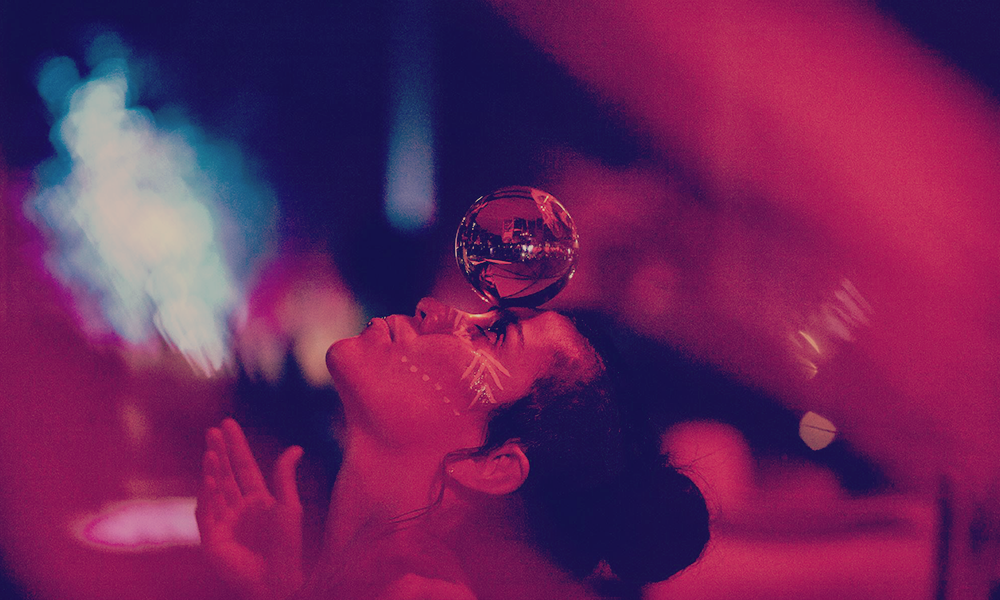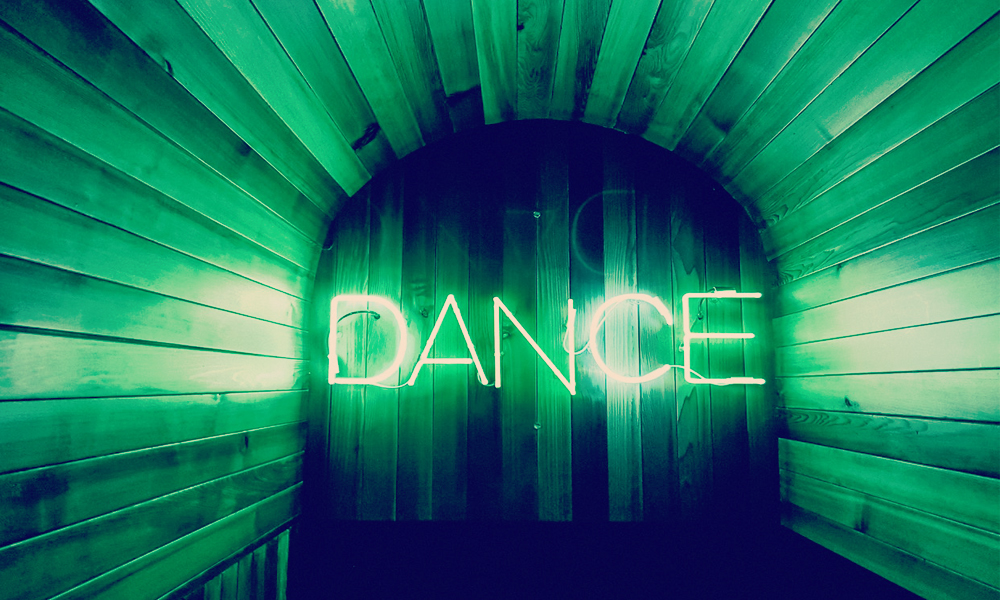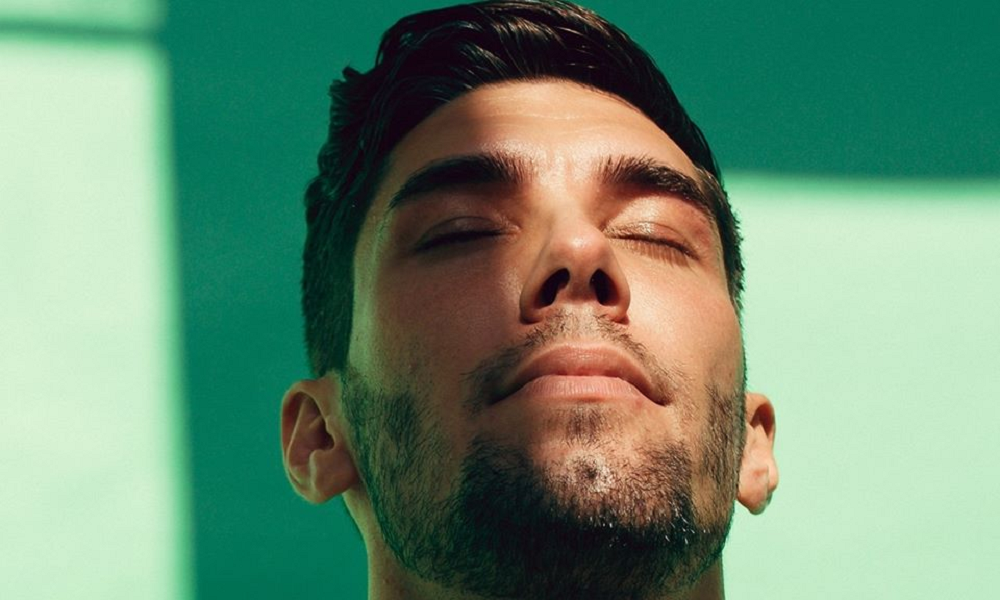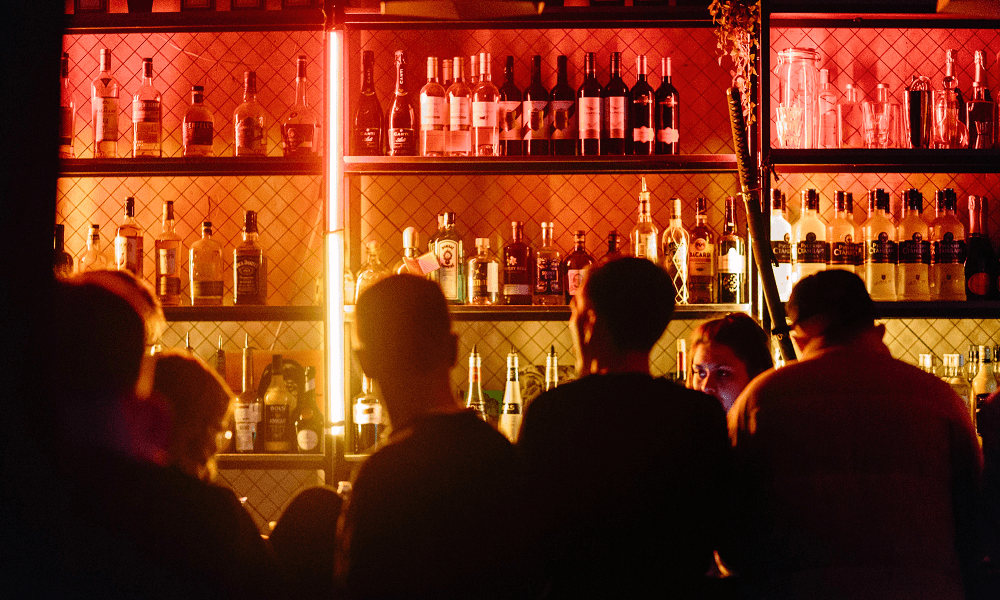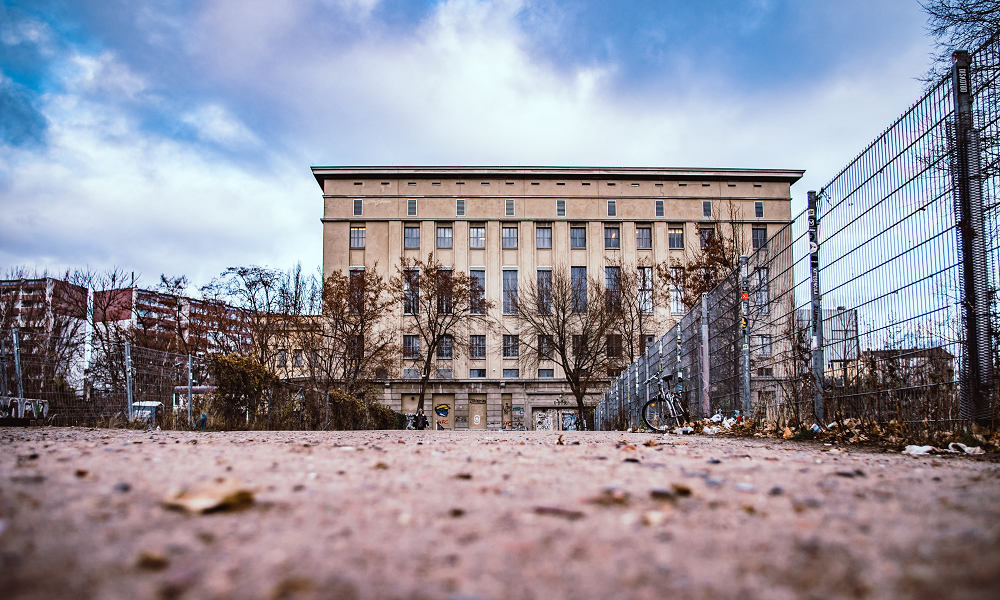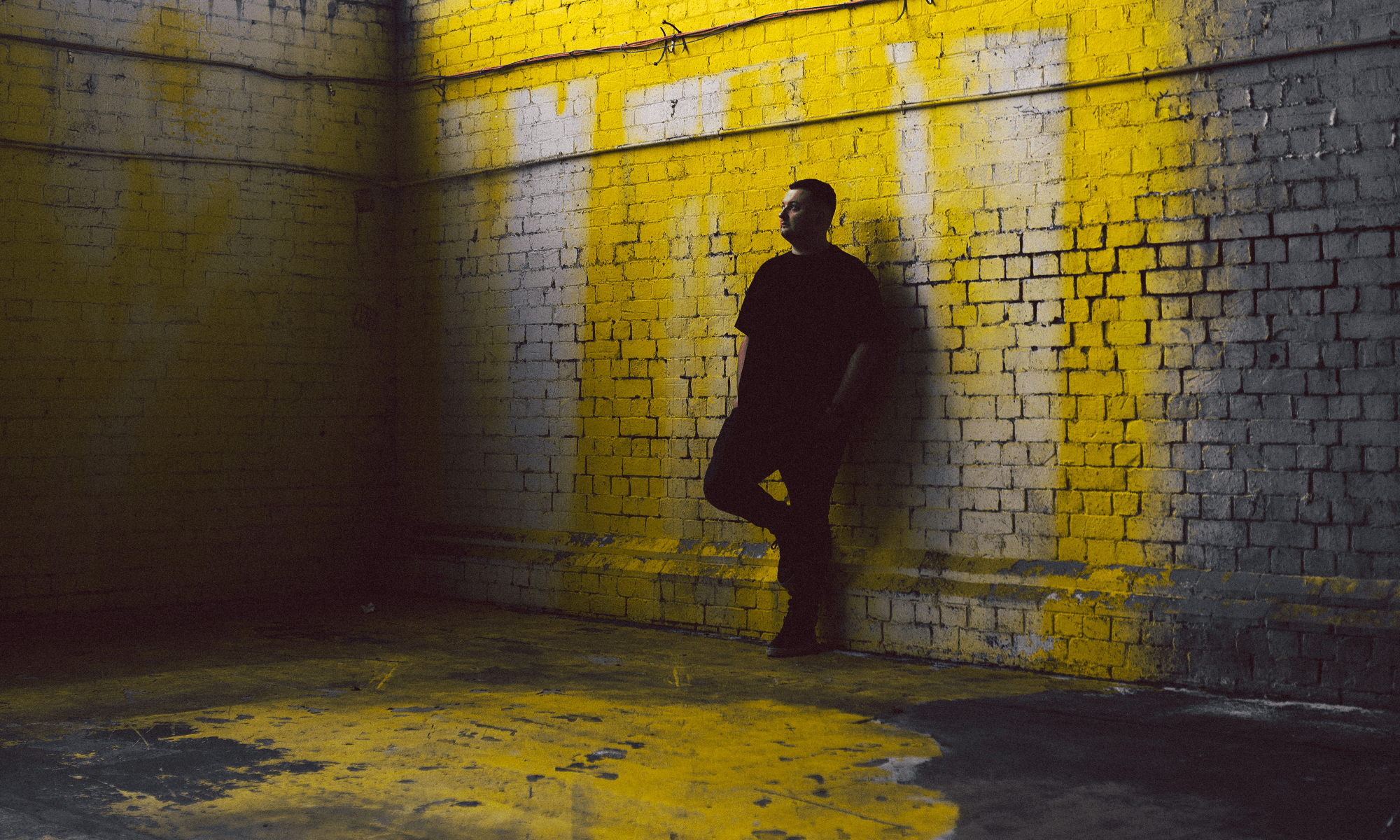Los Suruba and Barcelona have always had a very good relationship. The Madrid duo enjoyed a quarterly residency at the legendary Moog in the early 2000s. There, they even performed in the OFF Week Friday twice. We have also seen them recently at INPUT High Fidelity Dance Club, Brunch -in the Park, Laut (where they organize the showcases of their own Nazca label) and, of course, BClub, the new party that hosts the famous City Hall on Thursday nights, after the closing of Club4. In fact, it was Thursday. 1 am, to be exact. Álvaro Muñoz and Delmar dos Santos would begin their set at the Rambla Catalunya club shortly before 3 am, so we had an hour and a half to chat with them and discover some of their secrets and opinions about topics everybody is talking about nowadays.
Álvaro, 100% from Madrid. Delmar, born in Bilbao but raised also in the capital. What do you tell us about your city?
Delmar: When we started DJing at the end of the 90s, the Madrid scene was very, very beautiful. There were many record stores and a lot of musical culture. It was something that you could also feel with the level of the resident artists in the clubs. Being a guest DJ was a big challenge because the resident DJs were very good. Then, the laws were hardened, the ‘botellón’ (to drink with friends in the street) got forbidden, the volume of the venues got limited, the crisis came also a bit later… The scene got worse, although there were still interesting places and many people working with very good ideas, talent and desire to make the thing improve.
Álvaro: I’d say even more: at the end of the 90s, for me, the Madrid scene was one of the best in the world. We all played vinyl and, in sessions like the Deep’s ones (referring club of the time), they performed for the first time artists such as Carl Cox, Erick Morillo, Richie Hawtin, Roger Sanchez, Laurent Garnier… It’s true that now the thing isn’t so bad, but Madrid, being the capital of this country, still doesn’t have the scene it deserves.
So, Madrid is not on the Spanish top level right now?
Á: No. If we leave Ibiza out of the analysis, I would say Barcelona is on the top. Although in Madrid they also love us a lot, it’s been in Barcelona where we have acted, in general, in clubs of greater… recognition, let’s say. We debuted at Moog in 2005 and, since then, we have not stopped coming.
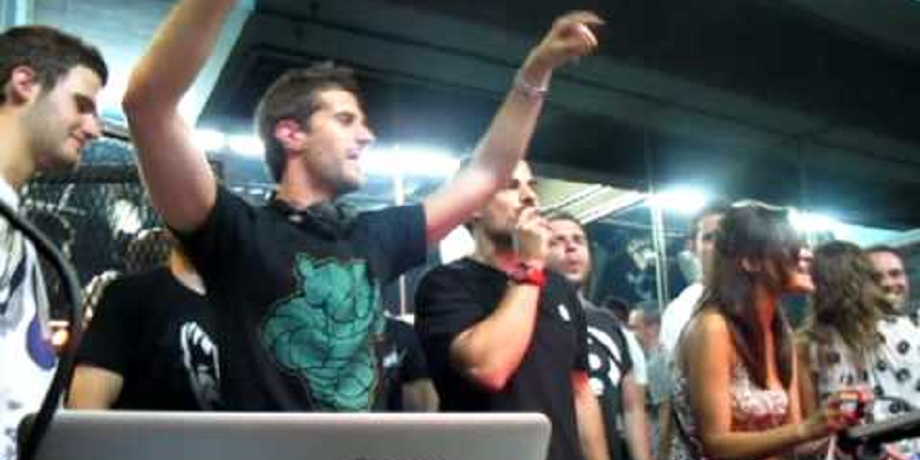
Is Barcelona at the level of the best scenes in the world or do you know of any that far exceeds it, such as London?
Á: We know London pretty well. For a year, we were residents of Ministry Of Sound, where we performed at the club’s 25th anniversary with artists like Todd Terje, Ewan Pearson and one of our favourite DJs, Greg Wilson. And we have performed at other clubs and festivals in the capital. It’s a different scene; neither better nor worse.
D: The London scene is one of the most powerful in the world, but it’s not my favourite. Whenever we have gone, we have performed at a great level, but there is something that doesn’t just captivate us. I would tell you that what is really cool is going to Argentina. That is one level above all else in terms of reaction and predisposition of the audience to dance, enjoy music and have fun.
Á: Yes. For us, Argentina is one of the places where we most enjoy acting. Buenos Aires has several of the best clubs in the country, although the scenes of Córdoba and Rosario are also very good. There, people go simply to dance. If the club opens at midnight, at 1 am it’s already crowded with everyone dancing. And, when we finish, many times the audience gives us feedback on the musical selection. They also criticize, but with arguments and constructively. We have been going there for five years and we hope to continue doing it many more.
You excluded Ibiza from the analysis before. Where is the island in all this story?
D: Uhm… It depends on the tastes of each one. What happens in Ibiza in summer marks what will happen in the international industry during the rest of the year, although later there are more alternative sectors, like all what happens around Dekmantel, for example. Ibiza marks the global trend, I’d say.
Is Ibiza then a comercial scene?
Á: Yeah, it’s kind of commercial, although it also keeps its true essence hidden in places like Las Dalias with parties like Namaste. What we live there in our Wednesday’s residence is something really authentic. Being able to play for families with small children and old people is something different that makes you so happy.
Many say that the island is now in decline: too much publicity, exorbitant prices…
D: The prices have always been very expensive. At the end of the 90s, we already paid 7,000 pesetas for getting into Pacha. In the end, Ibiza is a magical, unique island, a place everyone wants to go to at least once in their life. It’s normal for prices to rise as there is so much demand, but that doesn’t mean that we should abuse it.
Los Suruba. Why that name?
D: We can say that it was our audience that baptized us that way. I have Brazilian descent; part of my family lives there. Once, a cousin of mine travelled to Spain to visit me. We were out there to party and, after a few drinks, I asked him some bad words in Brazilian. The one we liked the most was “suruba”. Apparently, it means “orgy”, but in a very dirty context. In Brazil, they look very bad to you if you pronounce the word “suruba”. At that time, we were setting up our production and design studio and we liked the concept of “orgy” as the mix of music, design, art, dance… everything we like, in the end. We started to set up our own Suruba parties. Then, we went to have our own club, the Suruba Club, which worked for two years in Madrid, from 2005 to 2007. We were only Álvaro and Delmar and we played separately; one opened with a three-hour session and the other closed with three more. People started saying “let’s go to see Los Suruba“, “let’s surubing”, etc. We believe it’s because it has arisen naturally that people like it so much.
What about your music? House? Tech-house? Techno?
Á: We are music DJs. Just that. We have been resident DJs for many years and we love to start on an empty dancefloor with quiet styles and finish six hours later with the track full of energy. We believe that throughout the world this culture of slow progression in DJ sets, of preparing the track little by little, is being lost.
D: We like everything. If something is good, we like it. We consider ourselves music lovers. In fact, we started as DJs. In the beginning, when I was 17, I just wanted to be a DJ. Now that I am 39, after more than 14 years making music, I would say that the production was another concern that came naturally to us.
Why?
Á: Right now, being a producer is essential. Apart from that, over time, you start to want to make your own music and investigate other fields.
Maybe the problem is that nowadays everybody feels brave enough to play due to the facilities of the digital formats… Do you miss the vinyl? Why don’t you come back?
Á: We miss it, yeah. We have a 16,000 vinyl collection between Ibiza and Madrid and, yes, we are thinking about organizing a session on vinyl. At home, sometimes we play some vinyl discs because we feel nostalgic.
If I ask to you which artist do you like to work with, you’ll probably say Edu Imbernon…
Á: Edu is like our young brother and we admire him so much.
D: I’m 10 years older, dude… (laughs) He’s the youngest artist in history to have a number 1 sales on Beatport. Did you know that? He’s a machine.
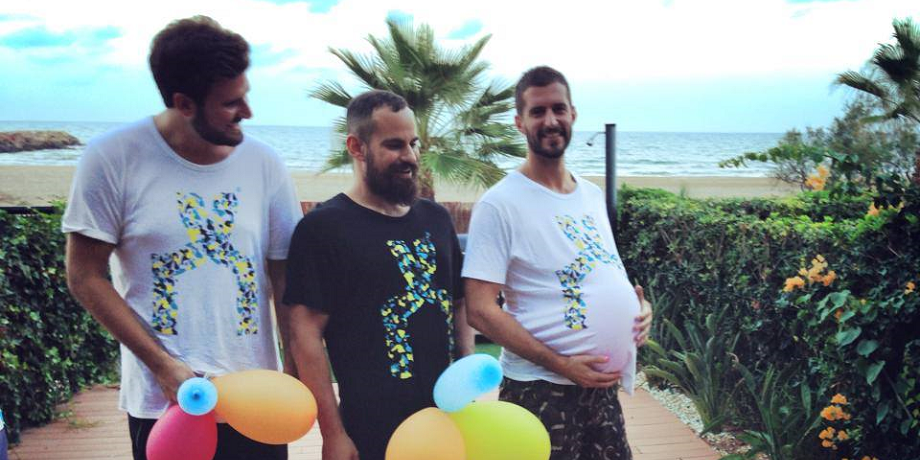
You are good friends, despite you made him loose a flight to a gig in Peru…
D: That’s a story Álvaro should tell you…
Why? Where were you?
D: Living one of the worst moments of my life. One day, a loud beep appeared in my ear. At first, I didn’t think it was important, but it got louder and louder every day. I was unable to get into a single bar where there was some noise. And, of course, we cannot talk about going to a nightclub. I couldn’t even stand a TV on. The music was over for me, at least for a while. I went to work as a builder, with earplugs and two hats on, so I wouldn’t hear anything. At that time, almost nothing was known about tinnitus and nobody gave me a solution.
What happened later?
D: It was in 2010, a request came from Tresor, the famous Berlin club. Álvaro called me and told me that that weekend there would be an event in which we would play on Friday and Jeff Mills on Saturday, so they would double the sound. (laughs) Jeff was bringing a new show that he was only gonna present at Tresor and in Japan, so I couldn’t refuse. Since that day, I have been playing.
Did the beep disappear?
D: No way! Tinnitus makes me constantly hear my ears beeping. A psychologist helped me to educate my brain to avoid hearing it. It’s like the noise of cars in the city or the air conditioning in the office: if you don’t pay attention, it’s there, but it doesn’t disturb you, your brain learns to cancel it. Well, with my beep it happens the same: although it’ll always be there, I try not to pay attention to it and go ahead. (laughs)
Incredible. I guess having Álvaro next to you is always a good help. Could you play without each other?
Á: It happened this year in Metro. Delmar couldn’t attend for personal reasons. It was the only time we didn’t act together. It was weird; I felt lonely. It’s important to emphasize that we don’t play a b2b, we are a duo. We complement each other. That day, many people came to give me much love for Delmar. It was strange but very exciting.
Did you know from the beginning that you would get far?
D: We’ve worked so hard… We’ve never felt incredulous to see where we are. We produce music, we edit, we remix, we search music to play, we prepare sets, but we also design the covers and prepare all the releases of our four labels, of some other posters for clubs, etc. In the end, the fact of DJing is just the prize. We have gone so many times to play for almost nothing… There are many hours involved in it.
Á: The gig in GOA (Madrid) in our debut in 2009. I would tell you that we noticed something different that day. We ended up playing four hours instead of two and a special atmosphere was breathed. We played many promos that people hadn’t heard and everything went amazing. It was also the beginning of social networks and many videos were recorded. I think that day was key.
D: Then 2013 came and, with it, our debut at the ANTS party in Ushuaïa, in Ibiza. That was also important.
Do you consider yourselves underground?
Both: Yes!!
D: But we don’t pretend to be it. We are ourselves and that is what we seek to be. It seems that we have our own style; it turns out to be like that. If next week I fall in love with a “paso doble” (a typical Spanish style), I assure you that in my next performance I will play a “paso doble”.
But, is to be commercial something bad?
Á: Of course it’s not!! If what you want is to win loads of money, go for it. If you enjoy that music, why not to do it?
D: We could consider Michael Jackson commercial and… is that bad? Try to produce his music… Or Avicii’s, for example. To achieve that sound is very, very difficult, even if it’s not my style.
How many hours could you be playing without a pause?
Á: Once we were playing music for 13 hours. It was in Mauritius Island, after 18 hours of flight. The island is 70% Hindu, with super strict laws. The other 30% is English & French ex-colony and they live in an authentic paradise. They surf every day and have a private club for 200 members, in which everyone knows each other. They make two parties a year and, in one of them, they always invite an international artist. We received the request in 2013 and there we were, on a private island for the event, enjoying for seven days that wonderful island and incredible people. We had to play for three hours, but it lasted until 13. It was very special. We left some friends there, we cannot wait to go back.
Was that one your best gig so far?
D: It was awesome, but not the best one…
Which was it?
D: It’s impossible to say one. We’ve lived so many good moments.
What about the worst?
D: No doubts about that one. It was in Madrid, in the old Cocoon club (which has nothing to do with Sven Väth‘s brand). We were called by a guy who was organising a party there to play, and when we arrived, we just found a vinyl deck and a shit CD player. At that time, we played only on vinyl. Luckily, we had driven, so we got Álvaro’s CDs case and we went ahead with that.
Á: It was surreal. We are talking about 2002 or 2003. They were the CDs I had in the car to listen to music! New Order albums and things like that. We were alternating: a CD, a vinyl. And the owner was manipulating the mixer to lower the volume. Everything seemed like a joke.
D: We had already played two hours more than expected and we couldn’t play anymore, so we started packing up our stuff. This is when the story became surreal. The owner told us that that day he had an afterparty going and that the DJ was not coming, so we had to stay there, playing for at least four more hours.
Á: We kept walking towards the door while we told him we had to go. It was once we got to the entrance when the doormen of the local threatened to beat us up if we stopped playing. We tried to get out of there. Luckily, we slipped away and left unharmed. We will never forget it.
Unbelievable. Which is the best audience you’ve had so far?
Both: Argentina, Spain and Romania.
And the worst?
Both: We know it perfectly, but we won’t say it.
Your best track?
Both: One which is going to be released really soon. It’s called ‘Burning Love’ and it’s the most special one we’ve ever produced.
The best track you’ve ever played?
Both: We play a lot of tracks we love. From time to time, we like to play tracks from the 70s and 80s that aren’t specifically electronic. The other day we closed with Jean Michel Jarre’s ‘Oxygene’, a very old track. It burst the dancefloor. It was amazing.
Nervous before a gig?
Both: The first time in the main room of Fabrik in front of 6,000 people, our debut on the big stage of Ushuaïa and also our debut in the main room of Space, also in Ibiza. But we fucking rocked in all of them!
Ashamed during a gig?
Á: Not during, but yes at the end. Once or twice I have unplugged the wrong soundcard after our set and I have left an entire festival without music… (laughs)
A b2b you’d love to see one day?
D: It’s hard to decide. I think I’d stay with a b2b in Coppelia of some of the DJs that I liked the most at that time like Miguel Mendoza, Iván Smoka, Silvia Sánchez or Álvaro Cabana… They’re all very good.
Á: I love ATA. I’d love to see him playing together with Damian Lazarus.
And a b2b you’d love to do?
D: It would be cool to play with Laurent Garnier. We like him a lot and there would be a lot of flow. He’s an eclectic guy, like us. We also played with Henry Saiz and it came out cool. We spent four or five hours enjoying ourselves as kids.
A front-line DJ you’ve never seen and you’d like to see?
D: I don’t know if they are front-line, but I’m curious to listen to Peggy Gou, now that everybody talks so much about her. I’m also struck by Ben UFO, Hunee and San Proper. I love San‘s style.
A festival you are still missing?
Á: Dekmantel.
D: And, if we can consider it a festival, Burning Man.
Your best experience in a festival?
D: It was in 2006 in a festival in the Community of Madrid. We were at Álvaro’s house after lunch and a colleague who had gotten passes for everyone called us. The first concert we saw was Massive Attack. It was a very good introduction for the moment in which we really got astonished. It was the first time we saw Daft Punk live. We simply hallucinate.
Guys, see you on the dancefloor.
Both: Always surubing.
(Cover Image: © Josu González)



